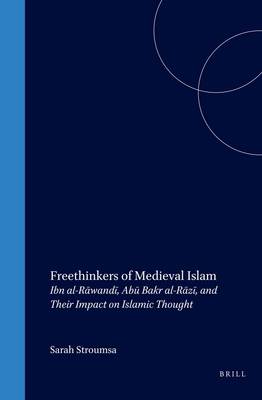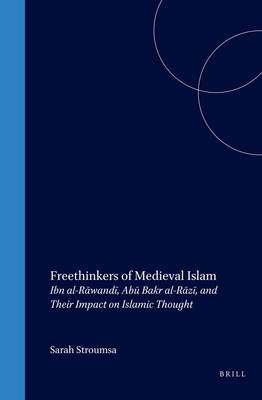
- Afhalen na 1 uur in een winkel met voorraad
- Gratis thuislevering in België vanaf € 30
- Ruim aanbod met 7 miljoen producten
- Afhalen na 1 uur in een winkel met voorraad
- Gratis thuislevering in België vanaf € 30
- Ruim aanbod met 7 miljoen producten
Zoeken
Freethinkers of Medieval Islam
Ibn Al-Rāwandī, Abū Bakr Al-Rāzī, and Their Impact on Islamic Thought
Sarah Stroumsa
€ 277,95
+ 555 punten
Uitvoering
Omschrijving
This book endeavors to identify and define the phenomenon of freethinking in medieval Islam, in particular as exemplified in the figures of the two most notorious intellectual heretics, Ibn al-Rāwandī (9th C.) and Abū Bakr al-Rāzī (10th C.).
The development of Islamic freethinking is analyzed on the background of the paramount importance of prophetology in Islam. The book examines the image of the freethinkers in Islam and its connection to the legacy of late antiquity, and to the traditions about Indian and Sabian religions. The last chapters examine repercussions of his phenomenon in various aspects of Muslim, Jewish and Christian medieval thought.
It is argued that, despite its rare occurrence, freethinking was in fact a pivotal Islamic phenomenon, which had a major impact on the development of Islamic thought.
The development of Islamic freethinking is analyzed on the background of the paramount importance of prophetology in Islam. The book examines the image of the freethinkers in Islam and its connection to the legacy of late antiquity, and to the traditions about Indian and Sabian religions. The last chapters examine repercussions of his phenomenon in various aspects of Muslim, Jewish and Christian medieval thought.
It is argued that, despite its rare occurrence, freethinking was in fact a pivotal Islamic phenomenon, which had a major impact on the development of Islamic thought.
Specificaties
Betrokkenen
- Auteur(s):
- Uitgeverij:
Inhoud
- Aantal bladzijden:
- 276
- Taal:
- Engels
- Reeks:
- Reeksnummer:
- nr. 35
Eigenschappen
- Productcode (EAN):
- 9789004113749
- Verschijningsdatum:
- 1/01/1999
- Uitvoering:
- Hardcover
- Formaat:
- Genaaid
- Afmetingen:
- 166 mm x 244 mm
- Gewicht:
- 621 g

Alleen bij Standaard Boekhandel
+ 555 punten op je klantenkaart van Standaard Boekhandel
Beoordelingen
We publiceren alleen reviews die voldoen aan de voorwaarden voor reviews. Bekijk onze voorwaarden voor reviews.







